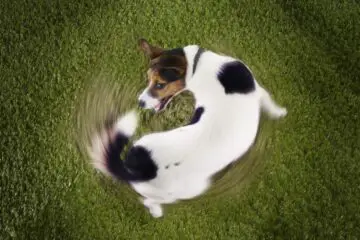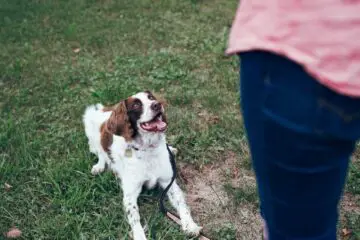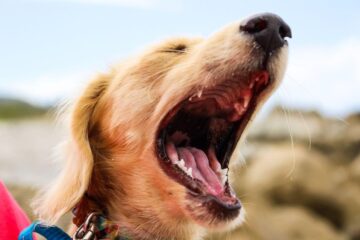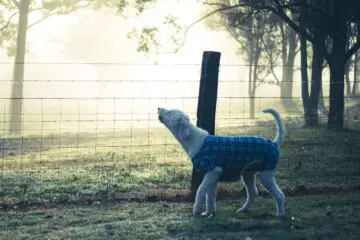9 Possible Reasons
- It’s an instinctual behavior.
- They’re bored or looking for attention.
- They’re anxious.
- They’re marking your bed as their territory.
- It’s a form of nesting behavior.
- They’ve learned it from other dogs.
- They’re seeking relief from pain or itchiness.
- They’re seeking comfort.
- They’re a terrier or another breed with a strong digging instinct.
Why Do Dogs Dig and Scratch the Ground?
The first step in answering the question „why does my dog dig on my bed?” is to look at the natural instincts of wild dogs. Canines dig for 6 main reasons:
- to bury things;
- to create a cool spot to lie in;
- to create a sheltered den if it’s windy or rainy;
- to find prey;
- to get under barriers (such as your fence);
- because it’s fun and keeps them occupied.
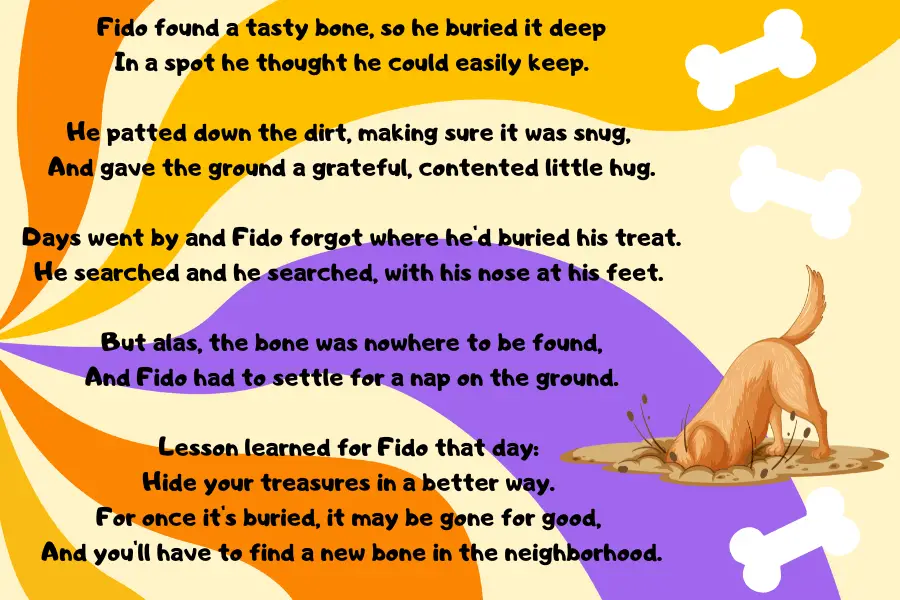
There are many reasons why dogs dig, but as you can see, they usually have to do with instinct or boredom. Two have to do with making dens – and if your pup doesn’t have a dog bed that they like, they might try to make your own bed more „inviting!” But if all their needs are met, why do they paw at your pillows and sheets?
Joke of the Day
What do you call a dog who digs for bones? A barkaeologist!
Why Does My Dog Dig on My Bed, Really?
Here are some possible explanations why your dog might be digging on your bed.
Boredom
If you’re asking, “why does my dog dig on my bed?”, think about whether they could be bored. If a dog isn’t getting enough physical and mental exercise, they may start to look for ways to entertain themselves. This often leads to destructive behaviors like digging, chewing, and excessive barking.
Anxiety
Another possible reason for bed digging is anxiety. An anxious pup will engage in behaviors that help them relieve the tension. For some dogs, this means digging on their owner’s bed – a safe place filled with comforting scents. This behavior is often seen in dogs that have separation anxiety or social anxiety.
Attention-Seeking
In some cases, bed digging may be a way for a dog to seek attention from their owners. This is often the case with dogs that are neglected or don’t get enough attention from their guardians. If a dog feels like they’re not getting the love and attention they need, they may start to behave in ways that will get them noticed, even if it’s negative attention.
They’re Territorial
Your dog might be trying to mark his territory. Dogs have a natural instinct to claim what’s theirs, and they may see your bed as additional space to be claimed as their own. They have scent glands on their paws, so digging is a way to leave their scent on the bed.
Nesting Behavior
If you have a female dog, she may be exhibiting nesting behavior. This is especially true if your dog is pregnant or has given birth recently, although it’s not unheard of for non-pregnant dogs to do it. Dogs will dig in their bedding to create a comfortable and safe place for themselves and their puppies. This behavior is instinctual, but can be redirected to other places with a little training.
Learned Behavior
Have you adopted your dog from a rescue or previous owner? They may have seen other dogs digging on beds. In that case, they think that it’s normal behavior. You may be able to stop it by teaching your pet that it isn’t an acceptable behavior.
Relief From Pain or Itchiness
If you’re wondering, “why does my dog dig on my bed?”, and your dog has never done it in the past, it may be due to discomfort. They may start to dig on soft surfaces to relieve pain or itchiness from arthritis, allergies, or other conditions.
They Want to Make Themselves Comfortable
In some cases, especially if the dog tends to sleep with their owner, they may start digging or scratching in order to make the bed more comfortable for themselves. This is usually not a problem unless the dog is damaging the bed.
Some Dog Breeds Are More Prone to Digging
Breeds that were originally bred for hunting or working often have a strong instinct to dig. These include terriers, hounds, Dachshunds, and Australian Shepherds.
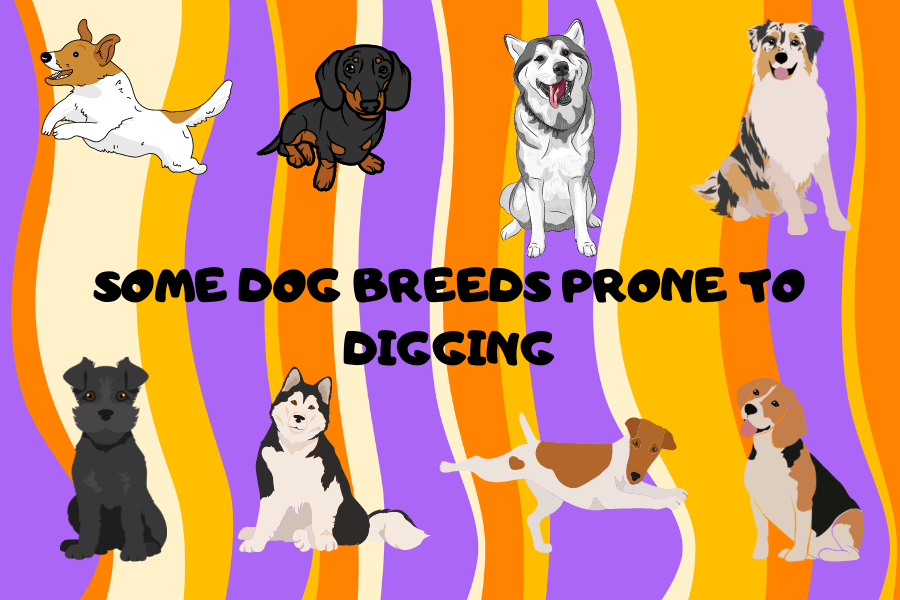
Other dogs that love to dig are those that are high-energy, easily bored, or anxious. If your pooch falls into one of these categories, do your best to provide them with plenty of exercise and mental stimulation. This will prevent them from feeling bored or anxious, reducing the likelihood of them digging on your bed.
Did You Know…
There’s a dog sport called Earthdog, where terriers and Dachshunds can indulge in digging all they want! In a simulated hunting situation, the contestants look for caged rats in labyrinth-like tunnels. It’s a lot of fun for both dog and owner, and no prey is harmed during the game.
How to Stop Your Dog From Digging on Your Bed?
So, there are many answers to the question “why does my dog dig on my bed?”. In many instances, this is an acceptable behavior and natural for a dog. But if your pup is damaging your bed or sheets, you may need to address it.
- If it’s due to boredom, anxiety, or attention-seeking, find ways to solve the underlying issues. This may mean giving your dog more exercise, attention, or training.
- If your dog is nesting, provide a separate area for them to nest in, like a crate with plenty of blankets and toys.
- If your dog has allergies, seek help and give them medication your vet prescribes.
- If it’s a learned behavior, provide training to teach your dog that it’s not acceptable. You can also redirect their digging to an appropriate place using positive reinforcement (clicker training and treats).
- If your dog is making sounds of pain when they dig or has other symptoms, take them to the vet as soon as possible.
Why Does My Dog Dig on My Bed: The Bottom Line
As you can see, there are a number of correct answers to the question „why does my dog dig on my bed?”. If your dog damages the bed while digging, it’s essential to stop the behavior. Pay attention to symptoms like pain or allergies to eliminate possible causes. If the problem persists, seek professional help.
FAQ – Dogs’ Digging Behaviors
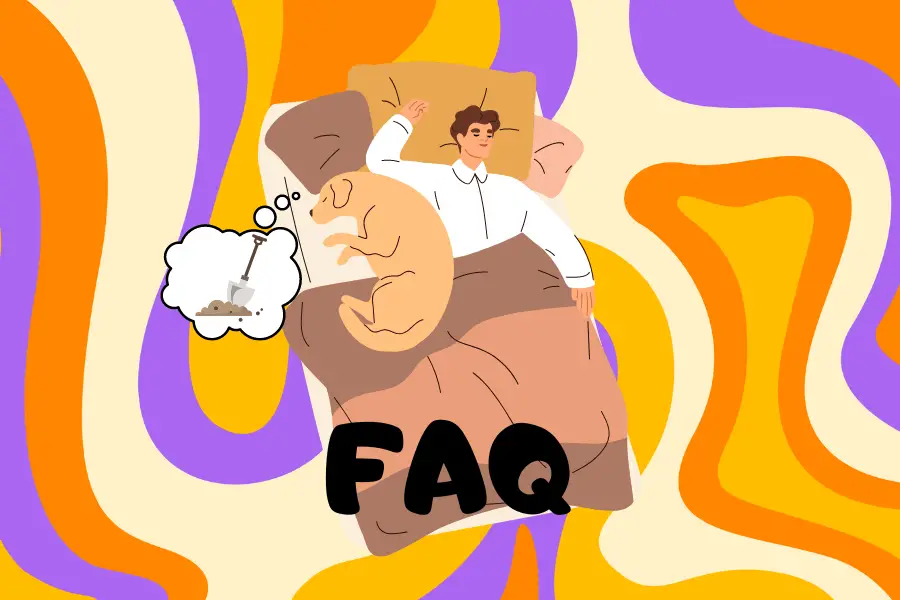
Why Does My Dog Dig on My Bed Like Crazy?
Has your canine companion been digging deep on your bed in a frenzied fashion? It could be an indication of anxiety, so take them out for some physical exercise and mental stimulation to reduce stress. If that doesn’t help, its best to consult with a professional dog trainer who can provide the tailored attention needed for success.
Why Won’t My Dog Stop Digging in My Bed?
If your pup won’t stop digging in your bed, it could be a deeper issue. See if you can remedy their behavior with patience and training – that’s always the first place to start! But don’t forget about other measures like taking them for a vet check-up or distracting them with toys. Consistency is key, so make sure your pup knows what behavior is expected of them and offer plenty of positive reinforcement when they do something right!
How Do I Get My Dog to Stop Scratching My Bed?
Trying to figure out why your pup is scratching up the bed? It might be caused by boredom, anxiety or even a medical condition. To keep them from destroying your mattress, make sure they’re given stimulating activities throughout the day! If nothing seems to help, invest in a protective cover for your bed to use when you’re not sleeping in it.
Why Is My Dog Suddenly Obsessed With Digging?
Is your pup suddenly more enthusiastic about excavations than an archaeologist? It may be that they’ve stumbled onto something exciting outdoors, or it could a sign of anxiousness due to changes in their environment. Give them plenty of activities and toys so you can keep curious eyes away from any hazardous materials around the home!
Is Digging Good Mental Stimulation for Dogs?
You bet! Digging gives your pup an opportunity to explore the world around them. They’re unearthing new scents, textures, or sounds while excavating their own little corner of paradise. But keep an eye on them! Make sure that any unearthed items are safe for your pooch.
Thom Kenley is an author and loves writing about pets. He’s always been a pet lover, and he enjoys sharing his stories and tips with others who love their furry friends just as much as he does. He’s written articles for various websites and magazines, and he’s excited to continue writing about pets and helping owners keep their animals healthy and happy.
